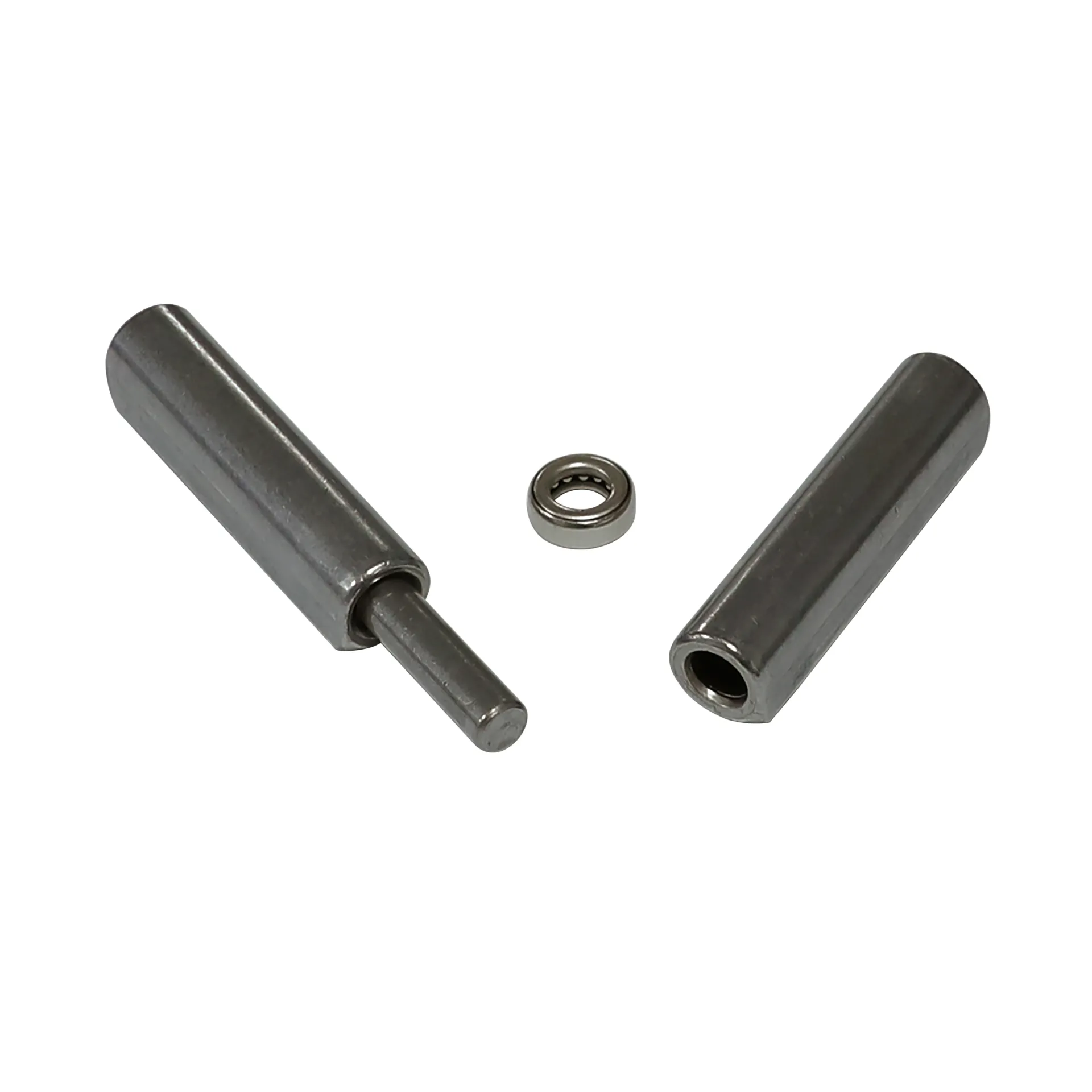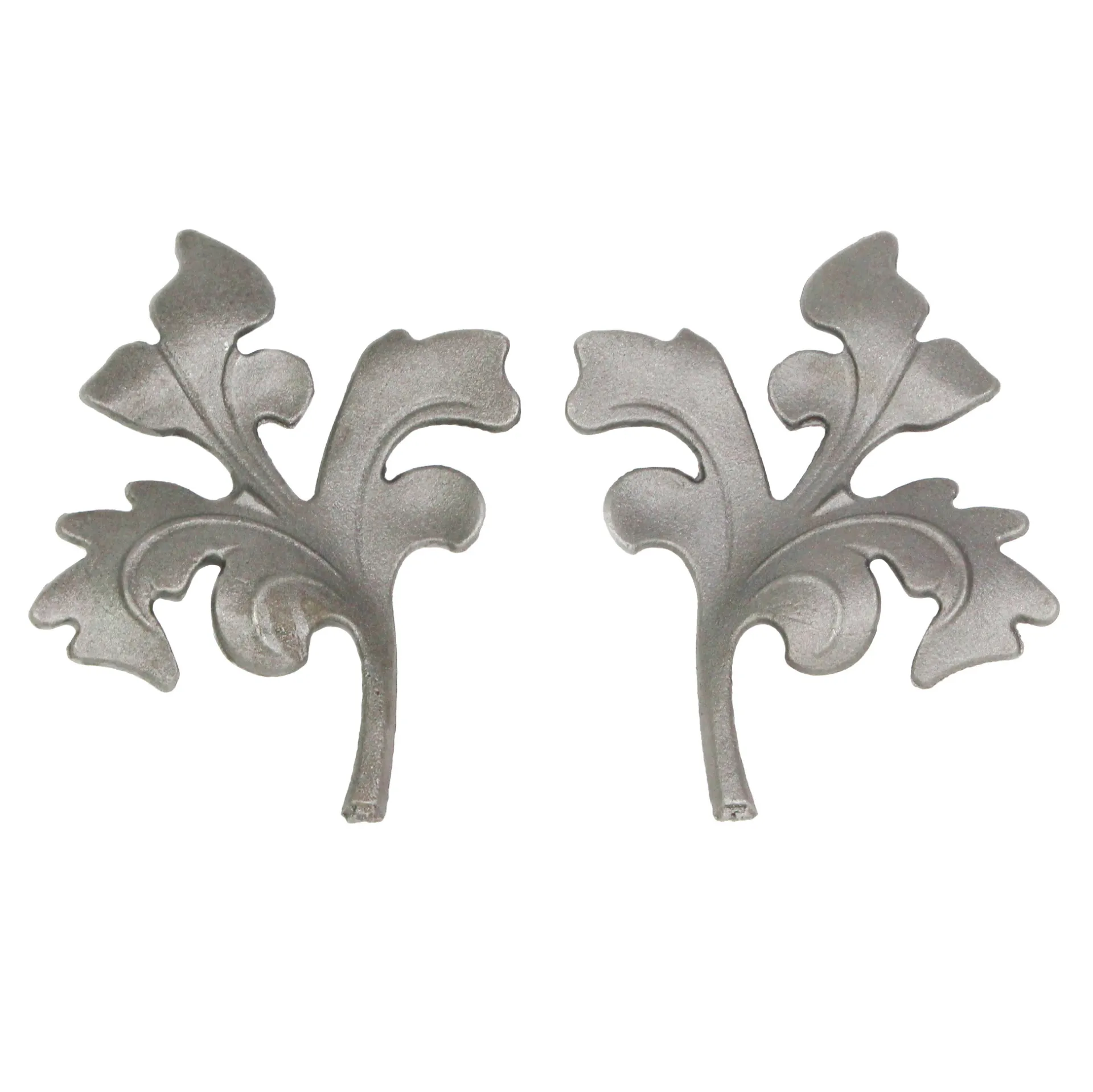
2月 . 02, 2025 05:19
Back to list
field gate hinges
Field gate hinges are an essential component for ensuring the secure and efficient functioning of gates, particularly in agricultural, residential, and industrial settings. Their importance extends beyond mere functionality, affecting both the safety and longevity of the gates they support. In this comprehensive analysis, we delve into various aspects of field gate hinges, offering professional insights, authoritative recommendations, and experiential advice.
Maintaining Field Gate Hinges Regular maintenance of field gate hinges is necessary to ensure their continued proper function. Despite the material, hinges should be checked periodically for signs of wear, rust, or damage. Lubricate moving parts with oil or specialist hinge lubricant to prevent squeaking and ensure smooth operation. Tighten any loose screws or bolts to prevent the gate from sagging or becoming misaligned. For galvanized and stainless steel hinges, a simple cleaning with soap and water should suffice, whereas wrought iron hinges may require rust-resistant coating after cleaning. Authoritative Recommendations When selecting field gate hinges, opt for reputable manufacturers known for their product quality and durability. Brands that adhere to high industry standards and offer warranties provide an added layer of trustworthiness and peace of mind. Additionally, consulting with professional gate installers or suppliers can provide valuable advice tailored to your specific requirements, further enhancing your decision-making process. Experiential Insights Drawing from practical experience, it's evident that the environmental conditions of the gate's location heavily influence the choice of hinges. For example, gates in humid or coastal areas are best equipped with stainless steel hinges to resist corrosion. In contrast, for a rustic aesthetic in rural settings, black epoxy-painted strap hinges might be preferable. Furthermore, considering the frequency of gate use can determine whether heavy-duty hinges are needed or if standard ones will suffice. Field gate hinges may seem like a small detail in the grand scheme of structure and security, yet their role is undeniably critical. By focusing on quality material, appropriate type selection, and regular maintenance, these hinges can offer years of reliable service. This approach not only enhances gate performance but also contributes to an overall sense of security and peace of mind. As advancements in material science and engineering continue, the future of field gate hinges promises even greater resilience and efficiency, solidifying their essential place in gate infrastructure.


Maintaining Field Gate Hinges Regular maintenance of field gate hinges is necessary to ensure their continued proper function. Despite the material, hinges should be checked periodically for signs of wear, rust, or damage. Lubricate moving parts with oil or specialist hinge lubricant to prevent squeaking and ensure smooth operation. Tighten any loose screws or bolts to prevent the gate from sagging or becoming misaligned. For galvanized and stainless steel hinges, a simple cleaning with soap and water should suffice, whereas wrought iron hinges may require rust-resistant coating after cleaning. Authoritative Recommendations When selecting field gate hinges, opt for reputable manufacturers known for their product quality and durability. Brands that adhere to high industry standards and offer warranties provide an added layer of trustworthiness and peace of mind. Additionally, consulting with professional gate installers or suppliers can provide valuable advice tailored to your specific requirements, further enhancing your decision-making process. Experiential Insights Drawing from practical experience, it's evident that the environmental conditions of the gate's location heavily influence the choice of hinges. For example, gates in humid or coastal areas are best equipped with stainless steel hinges to resist corrosion. In contrast, for a rustic aesthetic in rural settings, black epoxy-painted strap hinges might be preferable. Furthermore, considering the frequency of gate use can determine whether heavy-duty hinges are needed or if standard ones will suffice. Field gate hinges may seem like a small detail in the grand scheme of structure and security, yet their role is undeniably critical. By focusing on quality material, appropriate type selection, and regular maintenance, these hinges can offer years of reliable service. This approach not only enhances gate performance but also contributes to an overall sense of security and peace of mind. As advancements in material science and engineering continue, the future of field gate hinges promises even greater resilience and efficiency, solidifying their essential place in gate infrastructure.
Prev:
Next:
Latest news
-
Unique Design Ideas for Wrought Iron Wall DecorNewsJul.21,2025
-
Stainless Steel Pulley for Marine ApplicationsNewsJul.21,2025
-
Safety Features in Industrial Track PulleyNewsJul.21,2025
-
Precision Tolerances for 2 Inch U Groove WheelsNewsJul.21,2025
-
Iron Fence Spears Corrosion Protection MethodsNewsJul.21,2025
-
Iron Decorative Panels for Balcony ScreensNewsJul.21,2025
-
Industrial Applications Requiring Heavy Duty PulleyNewsJul.21,2025












